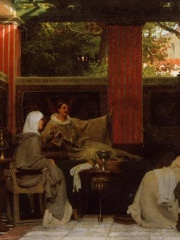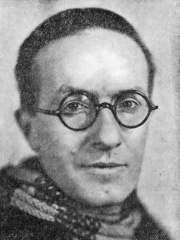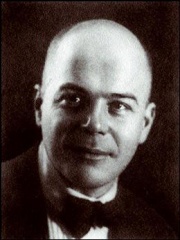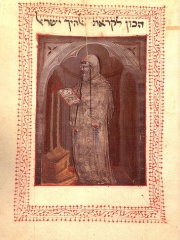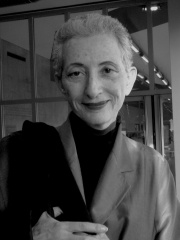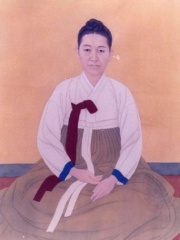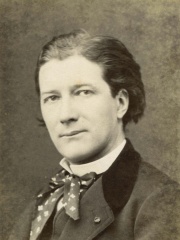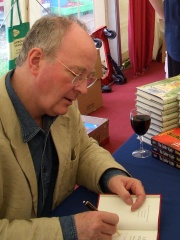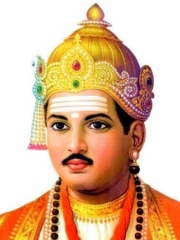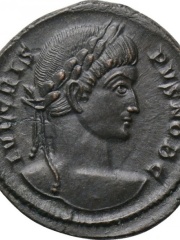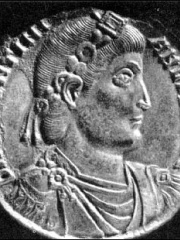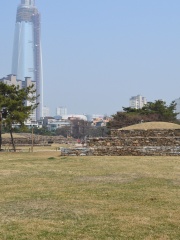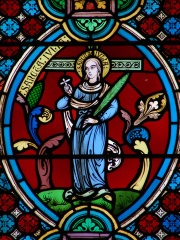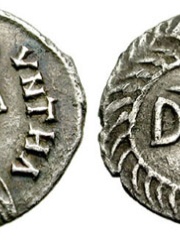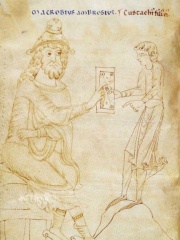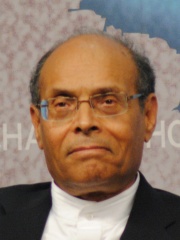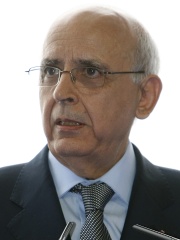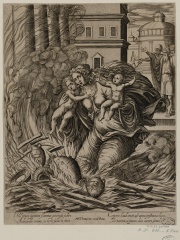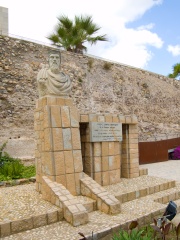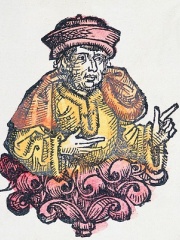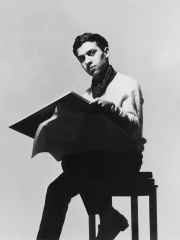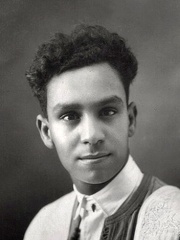Writer
Avienus
305 - 375
EN.WIKIPEDIA PAGE VIEWS (PV)

 Avienus
Avienus
His biography is available in 26 different languages on Wikipedia (up from 25 in 2024). Avienus is the 977th most popular writer (up from 1,482nd in 2024), the 28th most popular biography from Tunisia (up from 41st in 2019) and the 2nd most popular Tunisian Writer.
Memorability Metrics
Page views of Avienus by language
Among Writers
Among writers, Avienus ranks 977 out of 7,302. Before him are Venantius Fortunatus, Jean Giraudoux, Viktor Shklovsky, Abraham Abulafia, Sonia Rykiel, and Hélène Cixous. After him are Sin Saimdang, Victorien Sardou, Bruce Chatwin, Heinrich Kramer, Philip Pullman, and Basava.
Most Popular Writers in Wikipedia
Go to all RankingsVenantius Fortunatus
530 - 609
HPI: 68.37
Rank: 971
Jean Giraudoux
1882 - 1944
HPI: 68.37
Rank: 972
Viktor Shklovsky
1893 - 1984
HPI: 68.36
Rank: 973
Abraham Abulafia
1240 - 1292
HPI: 68.36
Rank: 974
Sonia Rykiel
1930 - 2016
HPI: 68.36
Rank: 975
Hélène Cixous
1937 - Present
HPI: 68.36
Rank: 976
Avienus
305 - 375
HPI: 68.35
Rank: 977
Sin Saimdang
1504 - 1551
HPI: 68.33
Rank: 978
Victorien Sardou
1831 - 1908
HPI: 68.28
Rank: 979
Bruce Chatwin
1940 - 1989
HPI: 68.28
Rank: 980
Heinrich Kramer
1430 - 1505
HPI: 68.28
Rank: 981
Philip Pullman
1946 - Present
HPI: 68.28
Rank: 982
Basava
1134 - 1196
HPI: 68.27
Rank: 983
Contemporaries
Among people born in 305, Avienus ranks 3. Before him are Pope Damasus I, and Crispus. Among people deceased in 375, Avienus ranks 2. Before him is Valentinian I. After him are Geunchogo of Baekje, and Firmus.
Others Born in 305
Go to all RankingsPope Damasus I
RELIGIOUS FIGURE
305 - 384
HPI: 79.31
Rank: 1
Crispus
POLITICIAN
305 - 326
HPI: 70.23
Rank: 2
Avienus
WRITER
305 - 375
HPI: 68.35
Rank: 3
Others Deceased in 375
Go to all RankingsValentinian I
POLITICIAN
321 - 375
HPI: 77.14
Rank: 1
Avienus
WRITER
305 - 375
HPI: 68.35
Rank: 2
Geunchogo of Baekje
POLITICIAN
324 - 375
HPI: 66.74
Rank: 3
Firmus
POLITICIAN
320 - 375
HPI: 60.31
Rank: 4
In Tunisia
Among people born in Tunisia, Avienus ranks 28 out of NaN. Before him are Julia of Corsica (420), Pierre Agostini (1941), Gunthamund (450), Macrobius (370), Kais Saied (1958), and Moncef Marzouki (1945). After him are Mohamed Ghannouchi (1941), Hasdrubal the Boetharch (-200), Sabinianus (200), Hasdrubal the Fair (-270), Arnobius (255), and Azzedine Alaïa (1935).
Others born in Tunisia
Go to all RankingsJulia of Corsica
RELIGIOUS FIGURE
420 - 450
HPI: 69.83
Rank: 22
Pierre Agostini
PHYSICIST
1941 - Present
HPI: 68.95
Rank: 23
Gunthamund
POLITICIAN
450 - 477
HPI: 68.94
Rank: 24
Macrobius
PHILOSOPHER
370 - 430
HPI: 68.81
Rank: 25
Kais Saied
POLITICIAN
1958 - Present
HPI: 68.62
Rank: 26
Moncef Marzouki
POLITICIAN
1945 - Present
HPI: 68.39
Rank: 27
Avienus
WRITER
305 - 375
HPI: 68.35
Rank: 28
Mohamed Ghannouchi
POLITICIAN
1941 - Present
HPI: 67.83
Rank: 29
Hasdrubal the Boetharch
POLITICIAN
200 BC - 160 BC
HPI: 67.66
Rank: 30
Sabinianus
POLITICIAN
200 - 240
HPI: 67.29
Rank: 31
Hasdrubal the Fair
POLITICIAN
270 BC - 221 BC
HPI: 67.13
Rank: 32
Arnobius
PHILOSOPHER
255 - 327
HPI: 67.11
Rank: 33
Azzedine Alaïa
POLITICIAN
1935 - 2017
HPI: 66.47
Rank: 34
Among Writers In Tunisia
Among writers born in Tunisia, Avienus ranks 2. Before him are Terence (-185). After him are Albert Memmi (1920), Nemesianus (300), Gisèle Halimi (1927), Dracontius (455), Aboul-Qacem Echebbi (1909), and Ahlam Mosteghanemi (1953).
Terence
185 BC - 159 BC
HPI: 78.08
Rank: 1
Avienus
305 - 375
HPI: 68.35
Rank: 2
Albert Memmi
1920 - 2020
HPI: 62.83
Rank: 3
Nemesianus
300 - 300
HPI: 60.91
Rank: 4
Gisèle Halimi
1927 - 2020
HPI: 60.45
Rank: 5
Dracontius
455 - 505
HPI: 60.42
Rank: 6
Aboul-Qacem Echebbi
1909 - 1934
HPI: 58.26
Rank: 7
Ahlam Mosteghanemi
1953 - Present
HPI: 56.34
Rank: 8
